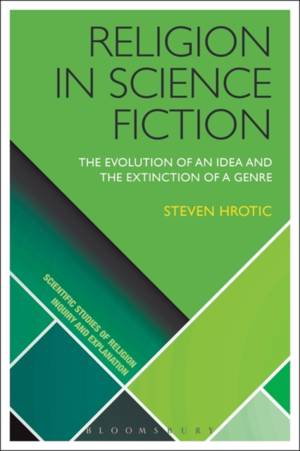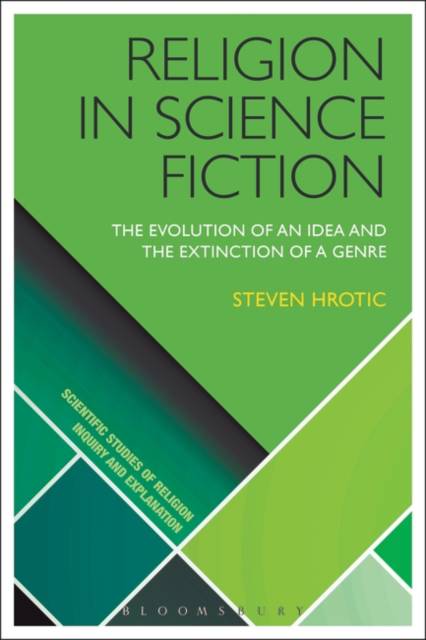
Bedankt voor het vertrouwen het afgelopen jaar! Om jou te bedanken bieden we GRATIS verzending (in België) aan op alles gedurende de hele maand januari.
- Afhalen na 1 uur in een winkel met voorraad
- In januari gratis thuislevering in België
- Ruim aanbod met 7 miljoen producten
Bedankt voor het vertrouwen het afgelopen jaar! Om jou te bedanken bieden we GRATIS verzending (in België) aan op alles gedurende de hele maand januari.
- Afhalen na 1 uur in een winkel met voorraad
- In januari gratis thuislevering in België
- Ruim aanbod met 7 miljoen producten
Zoeken
Religion in Science Fiction
The Evolution of an Idea and the Extinction of a Genre
Steven Michael Hrotic
€ 296,95
+ 593 punten
Omschrijving
Religion in Science Fiction investigates the history of the representations of religion in science fiction literature. Space travel, futuristic societies, and non-human cultures are traditional themes in science fiction. Speculating on the societal impacts of as-yet-undiscovered technologies is, after all, one of the distinguishing characteristics of science fiction literature. A more surprising theme may be a parallel exploration of religion: its institutional nature, social functions, and the tensions between religious and scientific worldviews.
Steven Hrotic investigates the representations of religion in 19th century proto-science fiction, and genre science fiction from the 1920s through the end of the century. Taken together, he argues that these stories tell an overarching story-a 'metanarrative'-of an evolving respect for religion, paralleling a decline in the belief that science will lead us to an ideal (and religion-free) future.
Science fiction's metanarrative represents more than simply a shift in popular perceptions of religion: it also serves as a model for cognitive anthropology, providing new insights into how groups and identities form in a globalized world, and into how crucial a role narratives may play. Ironically, this same perspective suggests that science fiction, as it was in the 20th century, may no longer exist.
Steven Hrotic investigates the representations of religion in 19th century proto-science fiction, and genre science fiction from the 1920s through the end of the century. Taken together, he argues that these stories tell an overarching story-a 'metanarrative'-of an evolving respect for religion, paralleling a decline in the belief that science will lead us to an ideal (and religion-free) future.
Science fiction's metanarrative represents more than simply a shift in popular perceptions of religion: it also serves as a model for cognitive anthropology, providing new insights into how groups and identities form in a globalized world, and into how crucial a role narratives may play. Ironically, this same perspective suggests that science fiction, as it was in the 20th century, may no longer exist.
Specificaties
Betrokkenen
- Auteur(s):
- Uitgeverij:
Inhoud
- Aantal bladzijden:
- 240
- Taal:
- Engels
- Reeks:
Eigenschappen
- Productcode (EAN):
- 9781472533555
- Verschijningsdatum:
- 1/08/2014
- Uitvoering:
- Hardcover
- Formaat:
- Genaaid
- Afmetingen:
- 152 mm x 236 mm
- Gewicht:
- 476 g

Alleen bij Standaard Boekhandel
+ 593 punten op je klantenkaart van Standaard Boekhandel
Beoordelingen
We publiceren alleen reviews die voldoen aan de voorwaarden voor reviews. Bekijk onze voorwaarden voor reviews.









